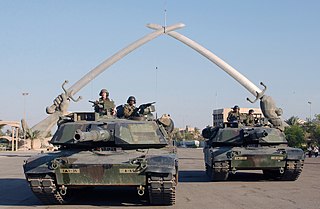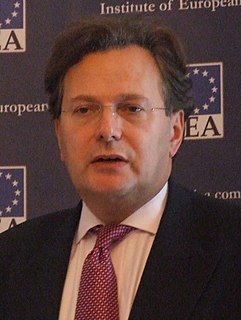 W
WJohn Michael Botean is an American Eastern Catholic prelate of the Romanian Church United with Rome, Greek-Catholic.
 W
WThe Bush–Aznar memo is reportedly a documentation of a February 22, 2003 conversation in Crawford, Texas between US president George W. Bush, Prime Minister of Spain José María Aznar, National Security Advisor Condoleezza Rice, Daniel Fried, Alberto Carnero, and Javier Rupérez, the Spanish ambassador to the U.S. British Prime Minister Tony Blair and Italian Prime Minister Berlusconi participated by telephone. Rupérez transcribed the meeting's details which El País, a Madrid daily newspaper, published on September 26, 2007. The conversation focuses on the efforts of the US, UK, and Spain to get a second resolution passed by the United Nations Security Council. This "second resolution" would have followed Resolution 1441. Supporters of the resolution also referred to it as the "eighteenth resolution" in reference to the 17 UN resolutions that Iraq had failed to comply with.
 W
WThe Bush–Blair 2003 Iraq memo or Manning memo is a secret memo of a two-hour meeting between American President George W. Bush and British Prime Minister Tony Blair that took place on 31 January 2003 at the White House. The memo purportedly shows at that point, the administrations of Bush and Blair had already decided on the invasion of Iraq two months later. The memo was written by Blair's chief foreign policy adviser, David Manning, who participated in the meeting.
 W
WThe U.S. rationale for the Iraq War has faced heavy criticism from an array of popular and official sources both inside and outside the United States. Putting this controversy aside, both proponents and opponents of the invasion have also criticized the prosecution of the war effort along a number of lines. Most significantly, critics have assailed the U.S. and its allies for not devoting enough troops to the mission, not adequately planning for post-invasion Iraq, and for permitting and perpetrating widespread human rights abuses. As the war has progressed, critics have also railed against the high human and financial costs.
 W
WAt a 2003 performance in London, Natalie Maines of the American country band the Dixie Chicks, now known as the Chicks, made a statement criticizing President George W. Bush and the imminent Allied invasion of Iraq. Maines said the band was ashamed to be from the same state as Bush, and that they did not support the war.
 W
WPeter Henry Goldsmith, Baron Goldsmith is a British barrister and a former Attorney General for England and Wales and for Northern Ireland. On 22 June 2007, Goldsmith announced his resignation which took effect on 27 June 2007, the same day that Prime Minister Tony Blair, stepped down. Goldsmith was the longest serving Labour Attorney General. He is currently a Partner and head of European litigation practice at US law firm Debevoise & Plimpton and Vice Chairperson of the Hong Kong International Arbitration Centre.
 W
WThis article describes the positions of world governments before the actual initiation of the 2003 invasion of Iraq, and not their current positions as they may have changed since then.
 W
W W
WThe Commission on the Intelligence Capabilities of the United States Regarding Weapons of Mass Destruction is a panel created by Executive Order 13328, signed by U.S. President George W. Bush in February 2004. The impetus for the Commission lay with a public controversy occasioned by statements, including those of Chief of the Iraq Survey Group, David Kay, that the Intelligence Community had grossly erred in judging that Iraq had been developing weapons of mass destruction (WMD) before the March 2003 start of Operation Iraqi Freedom. President Bush therefore formed the Commission, but gave it a broad mandate not only to look into any errors behind the Iraq intelligence, but also to look into intelligence on WMD programs in Afghanistan and Libya, as well as to examine the capabilities of the Intelligence Community to address the problem of WMD proliferation and "related threats." However, the commission was not directed to examine the extent to which the Bush administration may have manipulated the intelligence.
 W
WOn January 30, 2007, then-U.S. Senator Barack Obama introduced the Iraq War De-Escalation Act of 2007. The plan would have stopped the 2007 U.S. Troop Surge of 21,500 in Iraq, and would also have begun a phased redeployment of troops from Iraq with the goal of removing all combat forces by March 31, 2008. The bill was referred to committee and failed to become law in the 110th Congress.
 W
WThe Land letter was a letter sent to U.S. President George W. Bush by five evangelical Christian leaders on October 3, 2002, outlining their support for a just war pre-emptive invasion of Iraq. As its foundation for support, the letter refers to the "criteria of just war theory as developed by Christian theologians in the late fourth and early fifth centuries A.D." The letter was written by Richard D. Land, president of the Ethics & Religious Liberty Commission of the Southern Baptist Convention. It was co-signed by:Chuck Colson, founder of Prison Fellowship Ministries Bill Bright, chairman of the Christian organization Cru James Kennedy, president of Coral Ridge Ministries, and Carl D. Herbster, president of the American Association of Christian Schools
 W
WA dispute exists over the legitimacy of the 2003 invasion of Iraq. The debate centers around the question whether the invasion was an unprovoked assault on an independent country that may have breached international law, or if the United Nations Security Council authorized the invasion. Those arguing for its legitimacy often point to Congressional Joint Resolution 114 and UN Security Council resolutions, such as Resolution 1441 and Resolution 678. Those arguing against its legitimacy also cite some of the same sources, stating they do not actually permit war but instead lay out conditions that must be met before war can be declared. Furthermore, the Security Council may only authorise the use of force against an "aggressor" in the interests of preserving peace, whereas the 2003 invasion of Iraq was not provoked by any aggressive military action.
 W
WThe United States public's opinion on the invasion of Iraq has changed significantly since the years preceding the incursion. For various reasons, mostly related to the unexpected consequences of the invasion, as well as misinformation provided by US authorities, the US public's perspective on its government's choice to initiate an offensive is increasingly negative. Before the invasion in March 2003, polls showed 47–60% of the US public supported an invasion, dependent on U.N. approval. According to the same poll retaken in April 2007, 58% of the participants stated that the initial attack was a mistake. In May 2007, the New York Times and CBS News released similar results of a poll in which 61% of participants believed the U.S. "should have stayed out" of Iraq.
 W
WMatthew John Rycroft is a British civil servant and diplomat serving as Permanent Secretary at the Home Office since 2020, appointed following the resignation of Sir Philip Rutnam. Rycroft previously served as Permanent Secretary at the Department for International Development (DFID) from 2018 to 2020 and as the Permanent Representative to the United Nations in New York from 2015 to 2018.
 W
WThe events surrounding the 2003 invasion of Iraq have led to numerous expressions of opinion with respect to the war. This article contains links to several topics relating to views on the invasion, and the subsequent occupation of Iraq.
 W
WThe withdrawal of the United States troops from Iraq began in December 2007 with the end of the Iraq War troop surge of 2007 and was mostly completed by December 2011, bringing an end to the Iraq War. The number of U.S. military forces in Iraq peaked at 170,300 in November 2007.